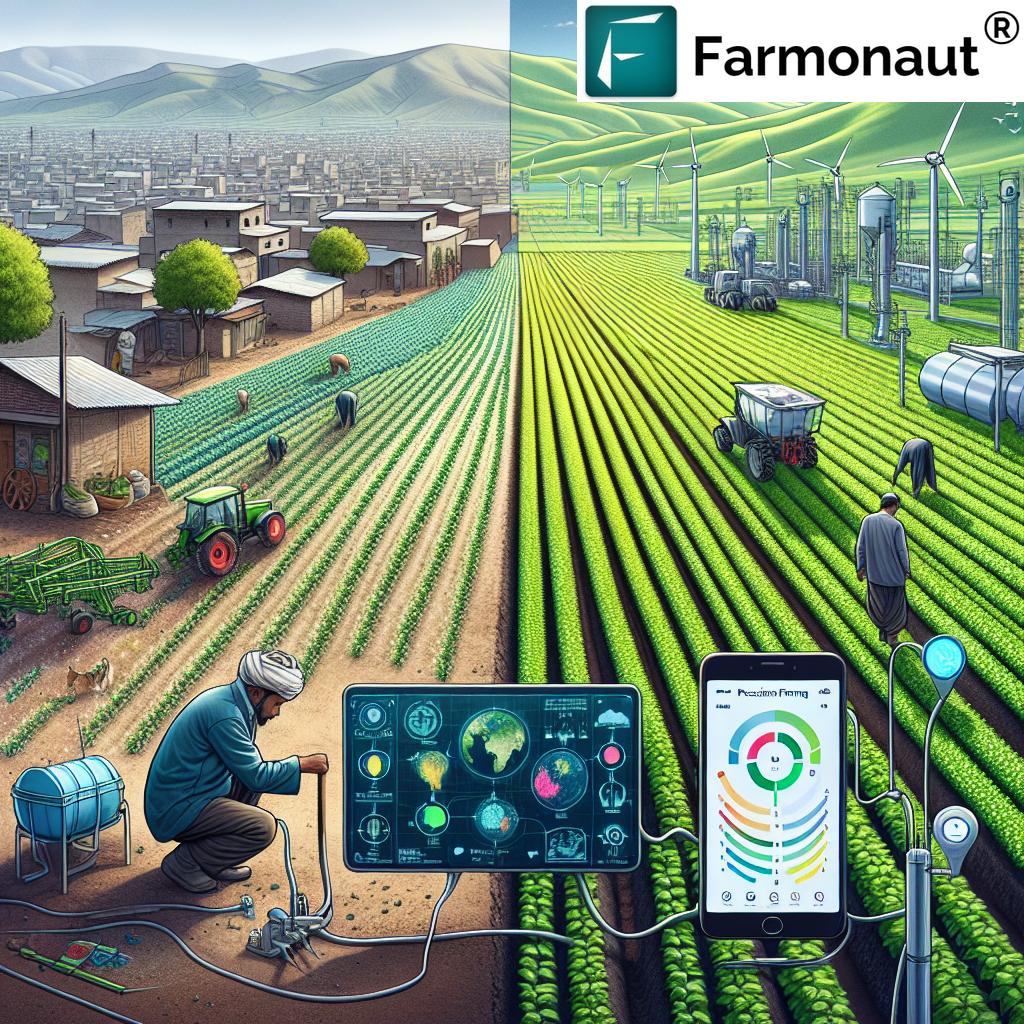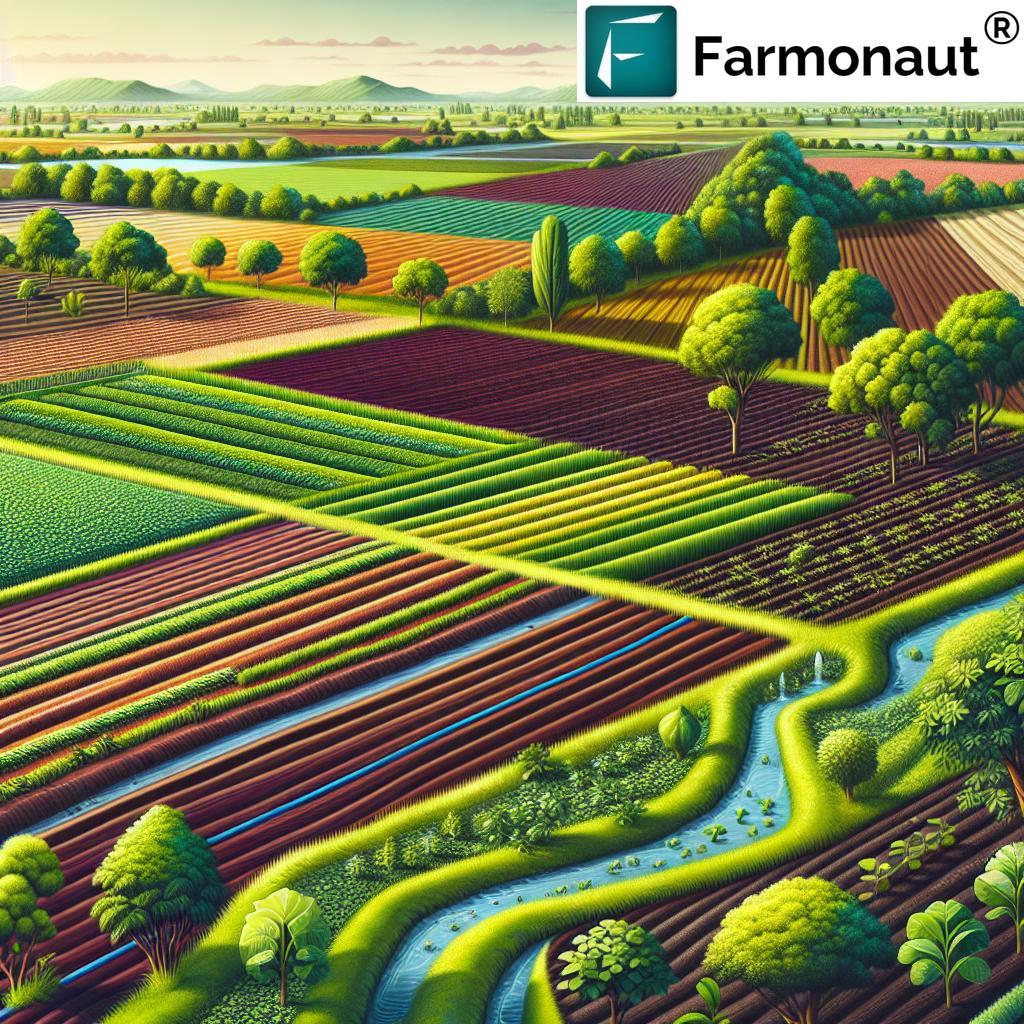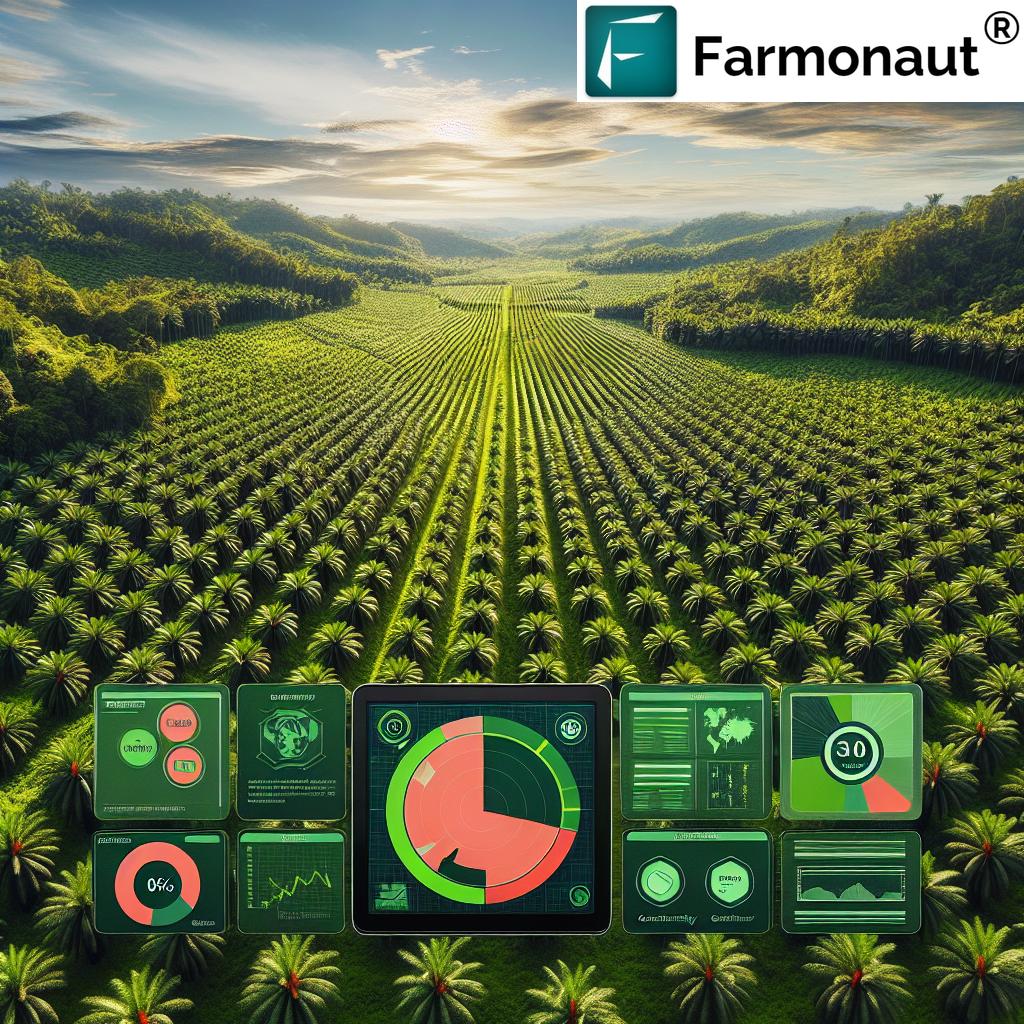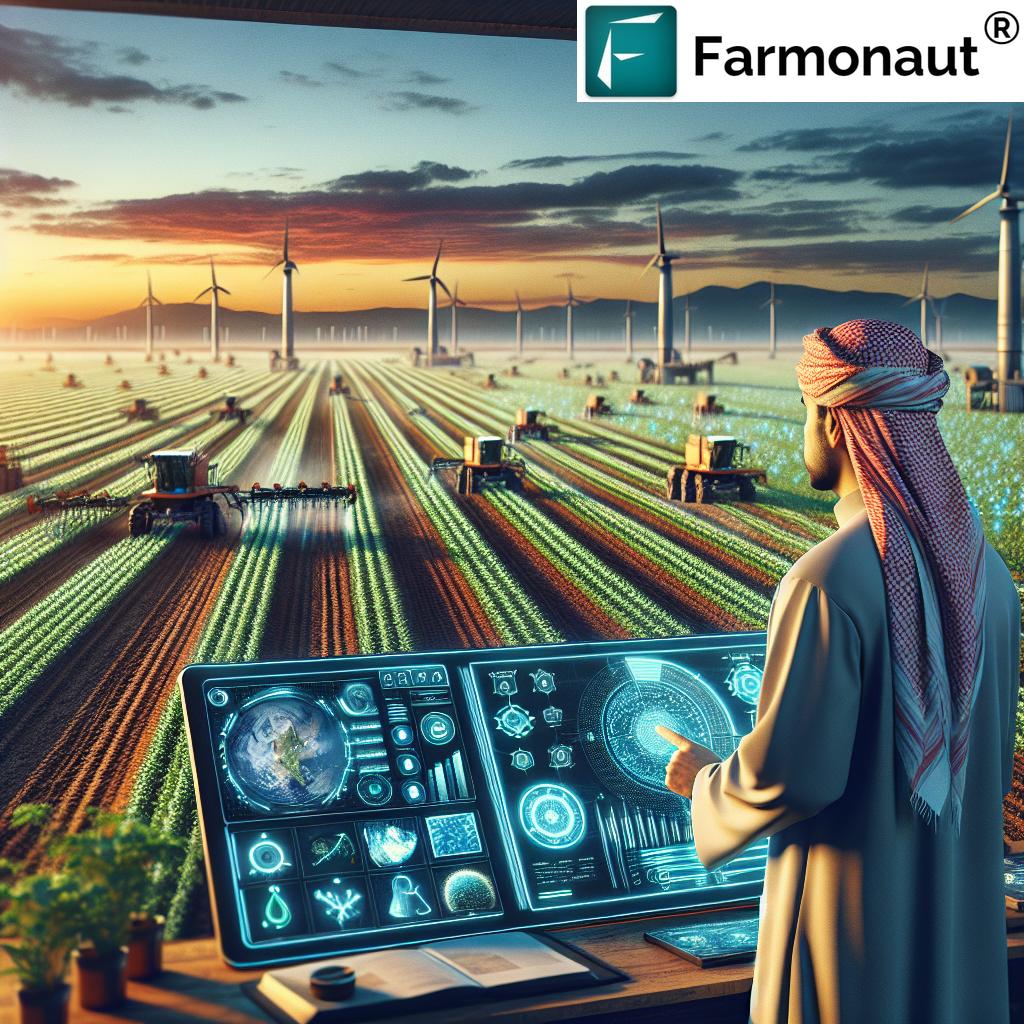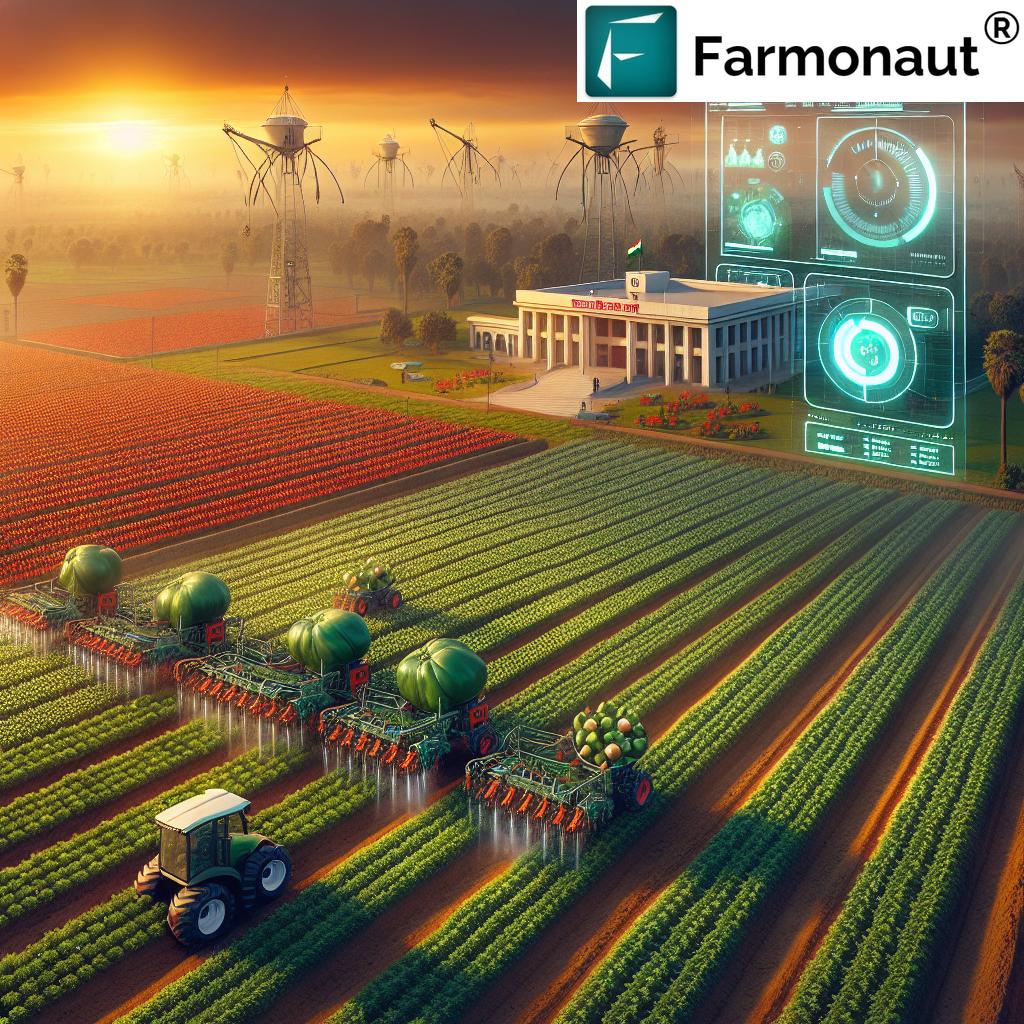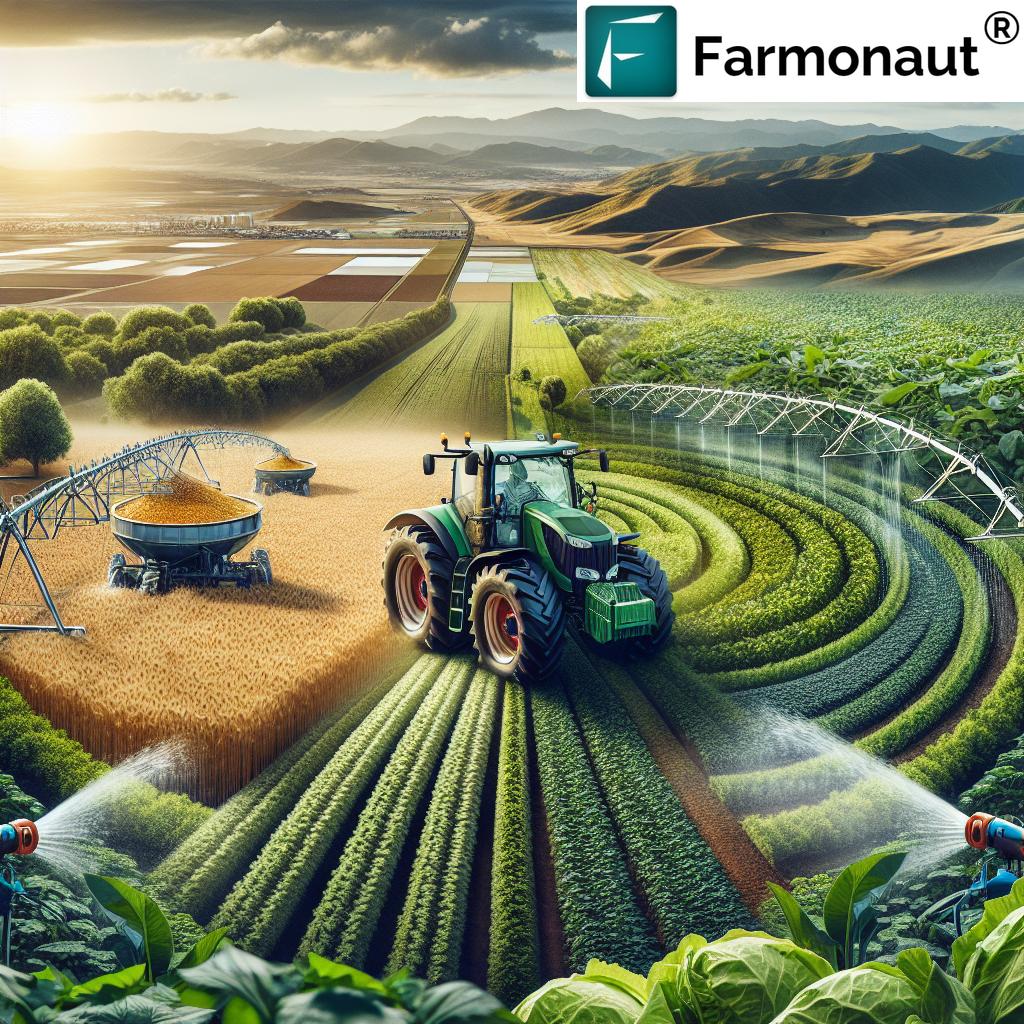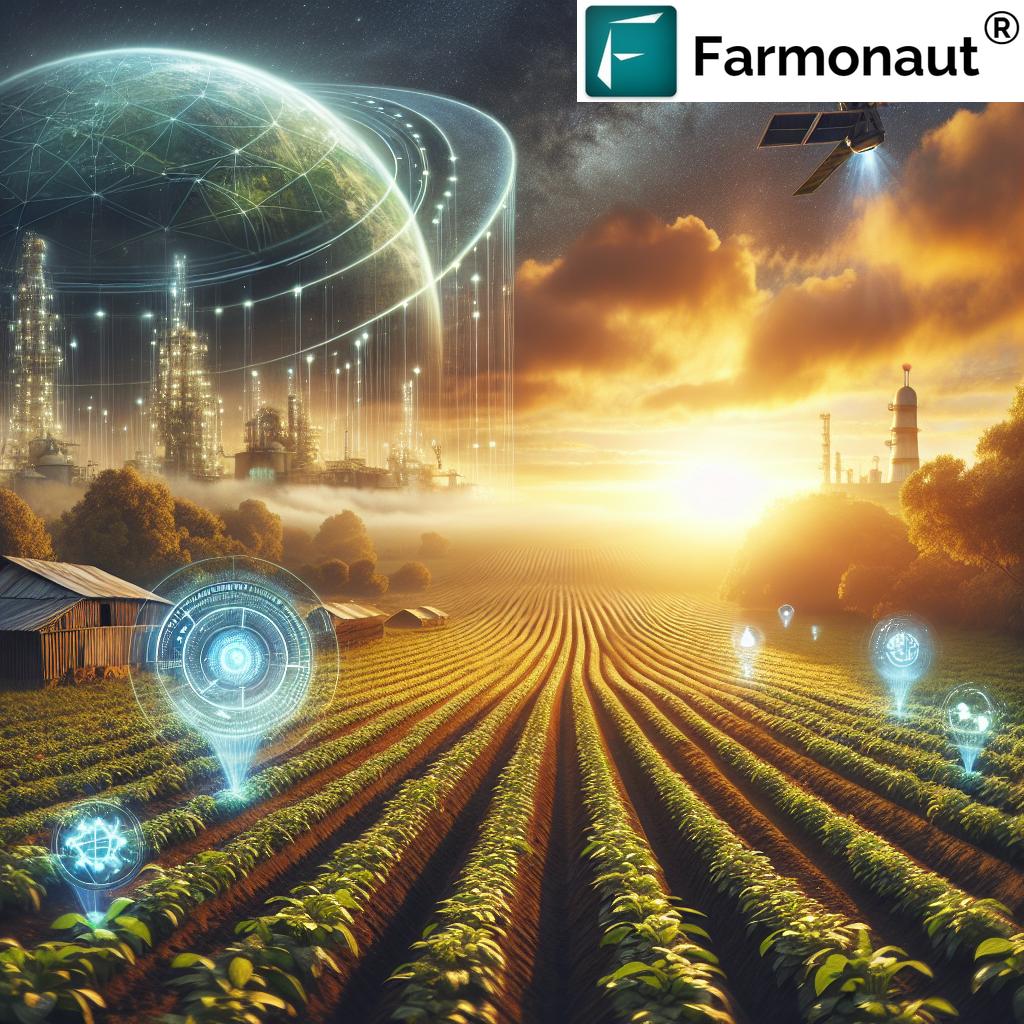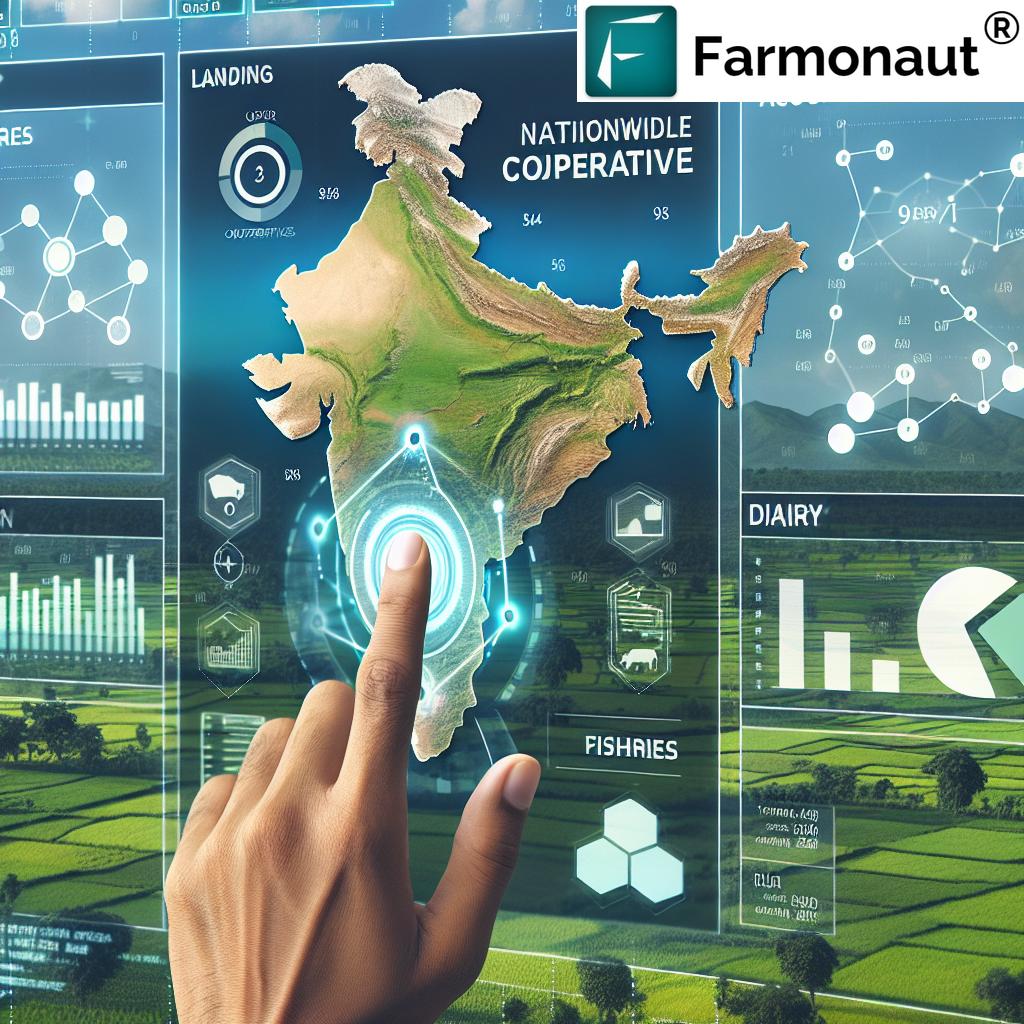Revolutionizing Baku’s Agriculture: How Precision Farming Tools Empower Small Farmers for Sustainable Food Security
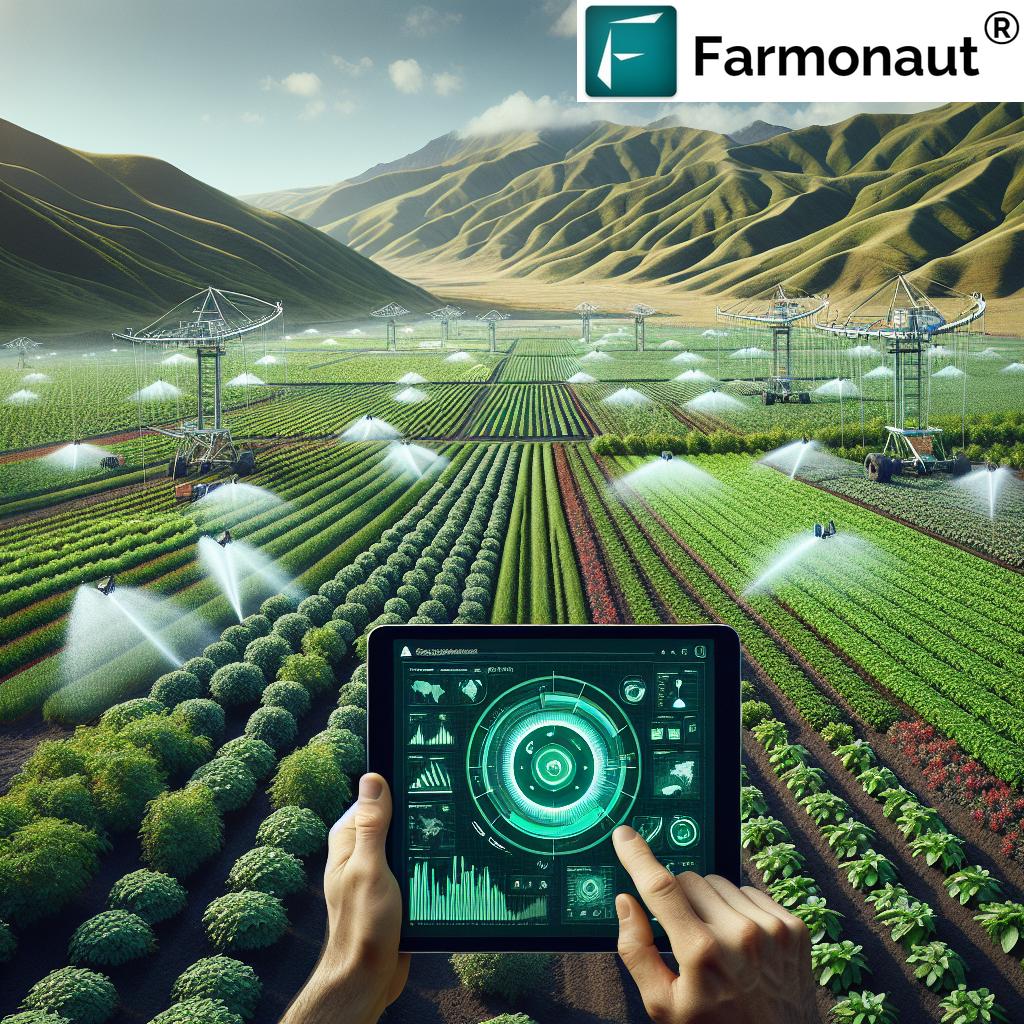
“Precision agriculture can increase crop yields by up to 30% while reducing water usage by 50%.”
In the heart of Azerbaijan, Baku’s agricultural landscape is undergoing a remarkable transformation. As the world grapples with the challenges of climate change and food security, we’re witnessing a revolution in farming practices that promises to empower small farmers and pave the way for a more sustainable future. At the forefront of this agricultural renaissance are precision farming tools and digital technologies that are reshaping how we approach food production and resource management.
In this comprehensive exploration, we’ll delve into how these innovative solutions are not just changing the face of agriculture in Baku but also offering a blueprint for sustainable farming practices worldwide. From satellite-based crop monitoring to AI-driven advisory systems, we’ll uncover the myriad ways in which technology is bridging the gap between traditional farming methods and the pressing need for climate-resilient agricultural solutions.
The Dawn of Precision Agriculture in Baku
Precision agriculture, a farming management concept based on observing, measuring, and responding to inter and intra-field variability in crops, has emerged as a game-changer for Baku’s agricultural sector. This approach leverages advanced technologies to ensure that crops and soil receive exactly what they need for optimum health and productivity. But what does this mean for the small farmers of Baku?
- Enhanced Resource Management: Precision farming tools allow for the precise application of water, fertilizers, and pesticides, reducing waste and environmental impact.
- Data-Driven Decision Making: Farmers can access real-time data on soil conditions, weather patterns, and crop health, enabling them to make informed decisions quickly.
- Increased Productivity: By optimizing inputs and reducing losses, precision agriculture has the potential to significantly boost crop yields.
One of the pioneering companies at the forefront of this agricultural revolution is Farmonaut. Through its innovative platform, Farmonaut is making precision agriculture accessible and affordable for farmers across Baku and beyond.
Digital Tools Transforming Baku’s Farming Landscape
The integration of digital tools in agriculture has been nothing short of transformative for Baku’s farming community. These technologies are not just improving efficiency; they’re fundamentally changing how farmers interact with their land and crops.
Satellite-Based Crop Monitoring
One of the most significant advancements in precision agriculture is the use of satellite imagery for crop monitoring. Farmonaut’s platform utilizes multispectral satellite images to provide farmers with crucial insights into their fields’ health and productivity.
- Vegetation Health Index (NDVI): This index helps farmers assess crop vigor and identify potential issues before they become visible to the naked eye.
- Soil Moisture Analysis: By analyzing satellite data, farmers can make informed decisions about irrigation, ensuring optimal water usage.
- Crop Stress Detection: Early identification of pest infestations or nutrient deficiencies allows for timely interventions.
AI-Powered Advisory Systems
Artificial Intelligence is revolutionizing agricultural advisory services, providing personalized recommendations to farmers based on a multitude of data points. Farmonaut’s Jeevn AI system is a prime example of how technology can act as a digital agricultural extension service.
- Personalized Crop Management Strategies: AI analyzes farm-specific data to offer tailored advice on planting, fertilization, and harvesting.
- Real-Time Weather Forecasts: Accurate weather predictions help farmers plan their activities and protect their crops from adverse conditions.
- Pest and Disease Alerts: Early warning systems enabled by AI can significantly reduce crop losses due to pests and diseases.
These digital tools are not just improving productivity; they’re also making farming more sustainable and environmentally friendly. By optimizing resource use and reducing chemical inputs, precision agriculture is helping Baku’s farmers reduce their environmental footprint while improving their yields.
Explore Farmonaut’s API for advanced agricultural insights
Climate-Resilient Farming Solutions for Baku
As climate change continues to pose significant challenges to agriculture worldwide, the need for climate-resilient farming solutions has never been more critical. In Baku, where water scarcity and extreme weather events are becoming increasingly common, precision agriculture tools are proving to be invaluable.
Water Management in a Changing Climate
Water is a precious resource in Baku’s semi-arid climate, and efficient water management is crucial for sustainable agriculture. Precision farming tools are helping farmers optimize their water use in several ways:
- Drip Irrigation Systems: Controlled by satellite data and soil moisture sensors, these systems deliver water directly to plant roots, reducing evaporation and runoff.
- Smart Scheduling: AI-powered systems analyze weather forecasts, crop water requirements, and soil moisture levels to create optimal irrigation schedules.
- Water Stress Detection: Satellite imagery can identify areas of crops experiencing water stress, allowing for targeted irrigation interventions.
By implementing these water management techniques, Baku’s farmers are not only conserving water but also improving crop resilience to drought conditions.
Soil Health and Fertility Optimization
Maintaining soil health is fundamental to sustainable agriculture, especially in the face of climate change. Precision agriculture tools are enabling Baku’s farmers to monitor and improve their soil conditions more effectively than ever before.
- Soil Mapping: Detailed soil maps created using satellite data and ground sensors help farmers understand the variability in soil types across their fields.
- Precision Nutrient Management: By analyzing soil data, farmers can apply fertilizers precisely where and when they’re needed, reducing waste and environmental impact.
- Carbon Sequestration: Improved soil management practices, guided by data from precision farming tools, can help increase soil organic matter, contributing to carbon sequestration.
These soil management techniques not only improve crop yields but also enhance the land’s resilience to climate-related stresses.
Access Farmonaut’s API Developer Docs for in-depth technical information
Empowering Small Farmers in Baku
One of the most significant impacts of precision agriculture in Baku has been its ability to level the playing field for small farmers. Traditionally, advanced farming technologies were out of reach for smallholders due to high costs and technical complexity. However, companies like Farmonaut are changing this narrative.
“Digital farming tools have helped small farmers in Baku reduce pesticide use by 40% in just two years.”
Democratizing Access to Advanced Agricultural Technologies
Farmonaut’s platform is designed with accessibility in mind, offering affordable solutions that cater to the needs of small-scale farmers:
- Mobile App Access: Farmers can access crucial data and insights directly from their smartphones, eliminating the need for expensive hardware.
- Scalable Solutions: The platform offers flexible packages that can be tailored to farms of various sizes, ensuring that even the smallest operations can benefit from precision agriculture.
- User-Friendly Interface: Intuitive design and local language support make it easy for farmers with limited technical expertise to utilize the platform effectively.
By making these tools accessible, Farmonaut is helping to bridge the digital divide in Baku’s agricultural sector, ensuring that small farmers can compete in an increasingly technology-driven industry.
Building Resilience Through Knowledge and Data
Beyond providing tools, precision agriculture platforms are also serving as valuable educational resources for Baku’s farming community:
- Best Practice Sharing: Farmers can learn from data-driven insights about successful farming practices in similar climatic conditions.
- Community Support: Digital platforms facilitate knowledge sharing among farmers, creating a supportive ecosystem for learning and growth.
- Continuous Learning: Regular updates and new features keep farmers informed about the latest advancements in agricultural science and technology.
This emphasis on education and community building is crucial for the long-term sustainability of Baku’s agricultural sector, ensuring that farmers can adapt to changing conditions and continue to thrive.
The Role of Data-Driven Farming Practices in Sustainable Food Security
As we look towards the future of agriculture in Baku, it’s clear that data-driven farming practices will play a pivotal role in ensuring sustainable food security. By harnessing the power of big data, AI, and satellite technology, farmers can make more informed decisions that not only improve their yields but also contribute to environmental conservation.
Precision Nutrient Management
One of the key areas where data-driven approaches are making a significant impact is in nutrient management. Traditional farming often relied on blanket applications of fertilizers, leading to inefficiencies and environmental problems. Precision nutrient management, enabled by tools like those offered by Farmonaut, allows for a more targeted approach:
- Variable Rate Application: By analyzing soil data and crop needs, farmers can apply different amounts of fertilizer to different parts of their fields, optimizing nutrient uptake.
- Reduced Environmental Impact: Precise application of fertilizers minimizes runoff, protecting local water sources from pollution.
- Cost Savings: By using only the necessary amount of fertilizer, farmers can significantly reduce their input costs.
This approach not only improves crop yields but also contributes to the long-term health of Baku’s agricultural lands.
Integrated Pest Management
Another area where data-driven practices are revolutionizing farming is in pest management. Traditional methods often relied on calendar-based pesticide applications, which could lead to overuse of chemicals. Precision agriculture enables a more sophisticated approach:
- Early Detection: Satellite imagery and ground sensors can detect pest infestations before they become visible to the naked eye.
- Targeted Interventions: By identifying specific problem areas, farmers can apply pesticides only where needed, reducing overall chemical use.
- Biological Control: Data-driven insights can help farmers time the release of beneficial insects or the application of biopesticides for maximum effectiveness.
These integrated pest management strategies not only protect crops more effectively but also contribute to the preservation of beneficial insect populations and overall ecosystem health.
The Future of Agriculture in Baku: A Comparative Analysis
To truly understand the transformative impact of precision agriculture on Baku’s farming landscape, let’s compare traditional farming methods with the precision farming techniques enabled by platforms like Farmonaut:
| Agricultural Practices | Traditional Farming | Precision Farming with Farmonaut | Benefits for Small Farmers |
|---|---|---|---|
| Water Management | Uniform irrigation, often leading to overwatering | Targeted irrigation based on soil moisture data, estimated 50% water savings | Reduced water costs, improved crop health |
| Soil Fertility Monitoring | Annual or bi-annual soil testing | Continuous monitoring through satellite data, weekly updates | Optimized fertilizer use, improved soil health |
| Crop Disease Detection | Visual inspection, often delayed response | Early detection through spectral analysis, response time reduced by 70% | Minimized crop losses, reduced pesticide use |
| Yield Prediction | Based on historical data and farmer experience, 60-70% accuracy | AI-driven predictions using multiple data points, 85-90% accuracy | Better planning for harvest and market sales |
| Resource Optimization | Uniform application of inputs across fields | Variable rate application, estimated 30% cost savings on inputs | Increased profitability, reduced environmental impact |
| Environmental Impact | Higher chemical use, potential for environmental degradation | Precision application, estimated 40% reduction in chemical use | Sustainable farming practices, potential for eco-certification |
This comparative analysis clearly demonstrates the significant advantages that precision farming tools offer to Baku’s small farmers. By adopting these technologies, farmers can not only improve their yields and reduce costs but also contribute to more sustainable and environmentally friendly agricultural practices.
Overcoming Challenges and Looking Ahead
While the benefits of precision agriculture are clear, its widespread adoption in Baku still faces some challenges. These include:
- Digital Literacy: Many small farmers may need support in learning how to use new technologies effectively.
- Initial Investment: Although more affordable than ever, there may still be initial costs associated with adopting precision farming tools.
- Connectivity Issues: Reliable internet access in rural areas is crucial for real-time data transmission and analysis.
However, these challenges are not insurmountable. With continued support from companies like Farmonaut, government initiatives, and agricultural extension services, Baku’s farming community can overcome these hurdles and fully embrace the potential of precision agriculture.
Conclusion: A Sustainable Future for Baku’s Agriculture
As we’ve explored throughout this article, precision farming tools and digital technologies are revolutionizing agriculture in Baku, offering climate-resilient solutions that empower small farmers and contribute to sustainable food security. By leveraging satellite imagery, AI-driven insights, and data-driven decision-making, farmers can optimize their resource use, increase productivity, and reduce their environmental impact.
The journey towards a fully digitalized agricultural sector in Baku is ongoing, but the progress made so far is truly remarkable. As more farmers adopt these innovative tools and techniques, we can look forward to a future where Baku’s agriculture is not only more productive but also more sustainable and resilient in the face of climate change.
By embracing precision agriculture and the digital revolution in farming, Baku is not just securing its own food future but also setting an example for other regions facing similar agricultural challenges. The story of Baku’s agricultural transformation is a testament to the power of innovation and the resilience of its farming community.
Frequently Asked Questions (FAQ)
- What is precision agriculture?
Precision agriculture is a farming management concept that uses technology to observe, measure, and respond to variability in crops, allowing for optimized resource use and improved yields. - How does satellite imagery help farmers?
Satellite imagery provides farmers with real-time data on crop health, soil moisture, and potential issues, allowing for timely interventions and better decision-making. - Can small farmers afford precision agriculture tools?
Yes, companies like Farmonaut are making precision agriculture tools affordable and accessible to small farmers through mobile apps and flexible pricing models. - How does precision agriculture contribute to sustainability?
By optimizing resource use and reducing chemical inputs, precision agriculture helps minimize environmental impact while improving crop yields. - What role does AI play in modern farming?
AI helps analyze vast amounts of agricultural data to provide personalized recommendations on crop management, pest control, and resource allocation.
